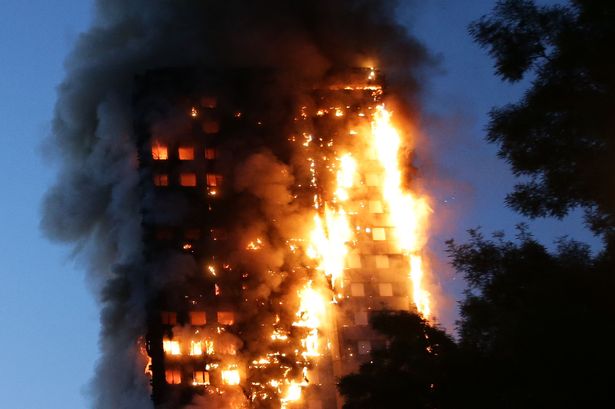The Grenfell Tower fire, a catastrophic event that unfolded in West London on June 14, 2017, claimed the lives of 72 people and left a scar on the city’s landscape and the psyches of its residents. Beyond the immediate devastation, the fire’s long-term health consequences, particularly for the firefighters who risked their lives battling the inferno, are now coming into stark relief. A recent independent report highlights the profound and pervasive health issues impacting more than a quarter of the firefighters who responded to the Grenfell Tower blaze, revealing the enduring toll of exposure to toxic smoke and extreme conditions. This report paints a somber picture of the physical and mental health challenges faced by these first responders, including respiratory problems, psychological trauma, and cancers, underscoring the urgent need for comprehensive long-term health monitoring and support services for these individuals.
The inferno at Grenfell Tower was fueled by highly combustible cladding, rapidly engulfing the 24-story residential building. This created an intensely hazardous environment for the firefighters who bravely confronted the flames and smoke. They faced not only extreme heat and physical exertion but also a cocktail of toxic chemicals released by the burning building materials. These chemicals, including cyanide and hydrogen chloride, posed an immediate threat and contributed to long-term health complications. The report emphasizes that the intensity and duration of exposure to these toxins significantly elevated the risk of developing various health problems, some of which may not manifest for years to come. This delayed onset of symptoms underscores the importance of ongoing medical surveillance and support for these firefighters, ensuring that they have access to the necessary resources to address their evolving health needs.
The report identifies a range of health issues plaguing the firefighters who responded to Grenfell. Respiratory illnesses, such as asthma and bronchitis, are prevalent, directly linked to the inhalation of smoke and toxic particles. Furthermore, many firefighters are grappling with mental health challenges, including post-traumatic stress disorder (PTSD), anxiety, and depression, stemming from the traumatic nature of the event and the devastating loss of life they witnessed. The report also highlights the increased risk of certain cancers among these firefighters, a grim consequence of their exposure to carcinogenic substances during the fire. This array of health problems paints a bleak picture of the long-term consequences faced by those who bravely confronted the Grenfell Tower fire, emphasizing the need for a multi-faceted approach to addressing their physical and psychological needs.
The findings of this report have brought to the forefront the inadequacies of current health monitoring and support systems for firefighters. While immediate medical attention was provided following the fire, the report reveals a critical gap in long-term care and monitoring. It stresses the necessity for comprehensive health assessments specifically designed to identify and address the delayed onset of health issues related to toxic exposure. Furthermore, the report advocates for increased access to mental health services and support programs tailored to the unique experiences of firefighters who confront such traumatic events. This underscores the crucial need for proactive and ongoing support to ensure that these individuals receive the care and resources necessary for their long-term well-being.
The implications of this report extend beyond the firefighters involved in the Grenfell Tower incident. It serves as a stark reminder of the occupational hazards faced by firefighters and the critical importance of investing in comprehensive health and safety measures. The report calls for a review and improvement of safety protocols and equipment to minimize exposure to toxic substances during fires. It also emphasizes the need for standardized health monitoring programs for all firefighters, ensuring that early detection and intervention can mitigate the long-term health consequences of exposure to hazardous materials. By implementing these recommendations, fire services can better protect their personnel and ensure that those who risk their lives to protect others receive the necessary care and support.
The Grenfell Tower fire serves as a tragic lesson about the enduring impact of such disasters. While the immediate loss of life was devastating, the long-term health consequences for the firefighters who responded to the blaze highlight a crucial but often overlooked aspect of such tragedies. The report’s findings underscore the urgent need for comprehensive long-term health monitoring and support services for these individuals, recognizing their sacrifices and ensuring that they receive the care they deserve. Furthermore, the report’s recommendations for improved safety protocols and equipment serve as a call to action for fire services across the globe, urging them to prioritize the health and well-being of their personnel and to learn from the tragic lessons of Grenfell Tower. This commitment to proactive prevention and comprehensive care is essential to safeguarding the health and well-being of those who bravely serve on the front lines of disaster response.














